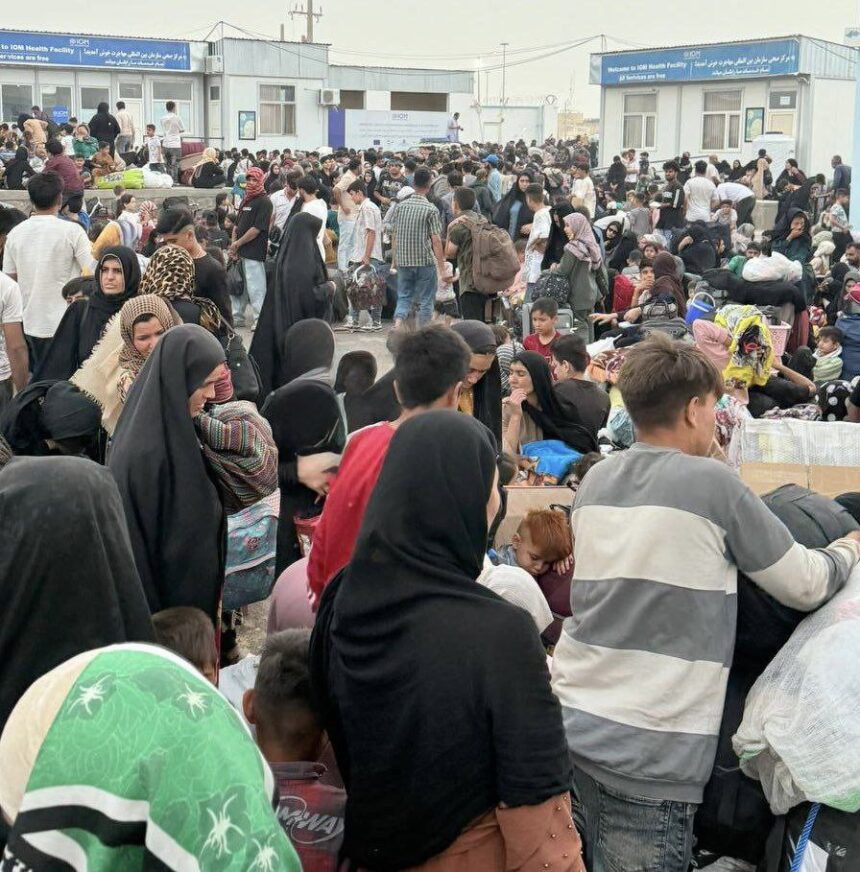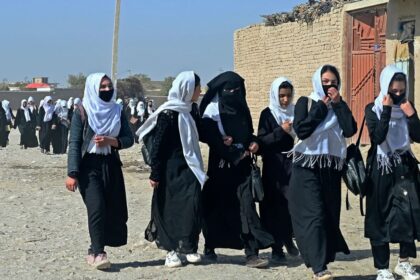RASC News Agency: Taliban authorities at the Islam Qala border crossing in Herat province have reported the mass return of over 30,000 Afghanistani migrants from Iran within a 24-hour period a staggering figure that has raised alarms among humanitarian organizations and border communities alike. According to a statement released on Wednesday, July 3, by the Taliban’s Department of Information and Culture in Herat, the pace of returns has accelerated significantly in recent days, with a large wave of Afghanistani nationals reportedly expelled or voluntarily departing from Iran and re-entering the country.
Taliban officials claim that basic necessities such as drinking water, food, and emergency services have been arranged at the border, and they assert that relief efforts will continue until the returnees’ situations are stabilized. However, independent observers and aid agencies have expressed doubts about the capacity of local authorities to cope with such a sudden and overwhelming influx, especially given Afghanistan’s deepening humanitarian crisis. Although Taliban officials have provided no clear explanation for the mass returns, unofficial sources suggest growing pressure on Afghanistani migrants inside Iran. Reports point to tightened residency restrictions, economic hardship, and widespread dissatisfaction among migrants due to increasing arrests, forced deportations, and deteriorating living conditions.
In recent months, rights groups have documented a pattern of detentions, arbitrary expulsions, and abuse of undocumented Afghanistani migrants in Iran. Many returnees report being deported without due process, while others cite insurmountable financial pressure and lack of access to employment or basic services. Humanitarian workers stationed near the Islam Qala border say they are struggling to meet the needs of the returnees, many of whom arrive with little more than the clothes on their backs. Taliban border officials have appealed for support from domestic and international organizations to provide temporary shelters, medical care, and food assistance for the growing number of displaced individuals.
The abrupt surge in repatriations has raised concerns among local communities and humanitarian actors alike. Many of the returnees are arriving without documentation, housing, or income, and are being funneled into an economic landscape marked by collapse, job scarcity, and food insecurity. Migration experts and civil society advocates warn that unless there is an urgent and coordinated national response, the return of tens of thousands of migrants could exacerbate social tensions, urban overcrowding, and poverty in already fragile regions. Moreover, observers criticize the Taliban for attempting to frame the return of migrants as a sign of stability or successful repatriation, when in fact it reflects the growing regional hostility toward Afghanistani refugees and the Taliban’s failure to provide basic living conditions and political safety inside the country factors that originally forced millions to flee.
As Afghanistan continues to reel under economic collapse, international isolation, and internal repression, the sudden return of tens of thousands of vulnerable citizens only deepens the country’s humanitarian crisis one that shows no signs of abating under the Taliban’s repressive and unaccountable rule.






